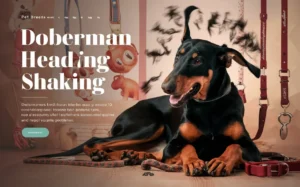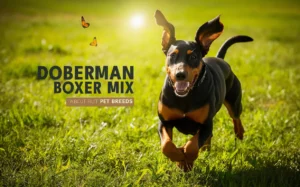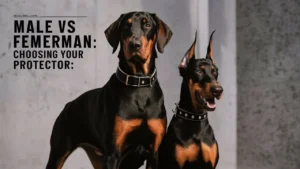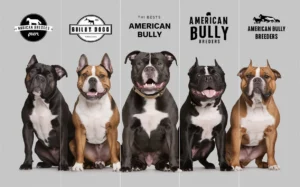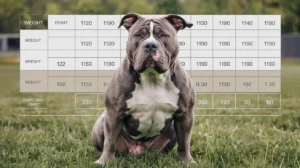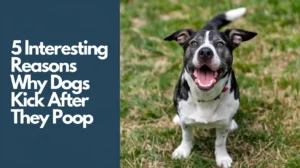Cocker Spaniels are known for their playful nature and loving personalities. However, like all dogs, they can sometimes develop odors that raise concerns for pet owners.
If you’ve ever wondered, “Why does my Cocker Spaniel smell?” you’re not alone.
This blog post explores the reasons behind the smell and offers helpful tips to keep your furry friend fresh and healthy.
Understanding the Causes of Odor in Cocker Spaniels
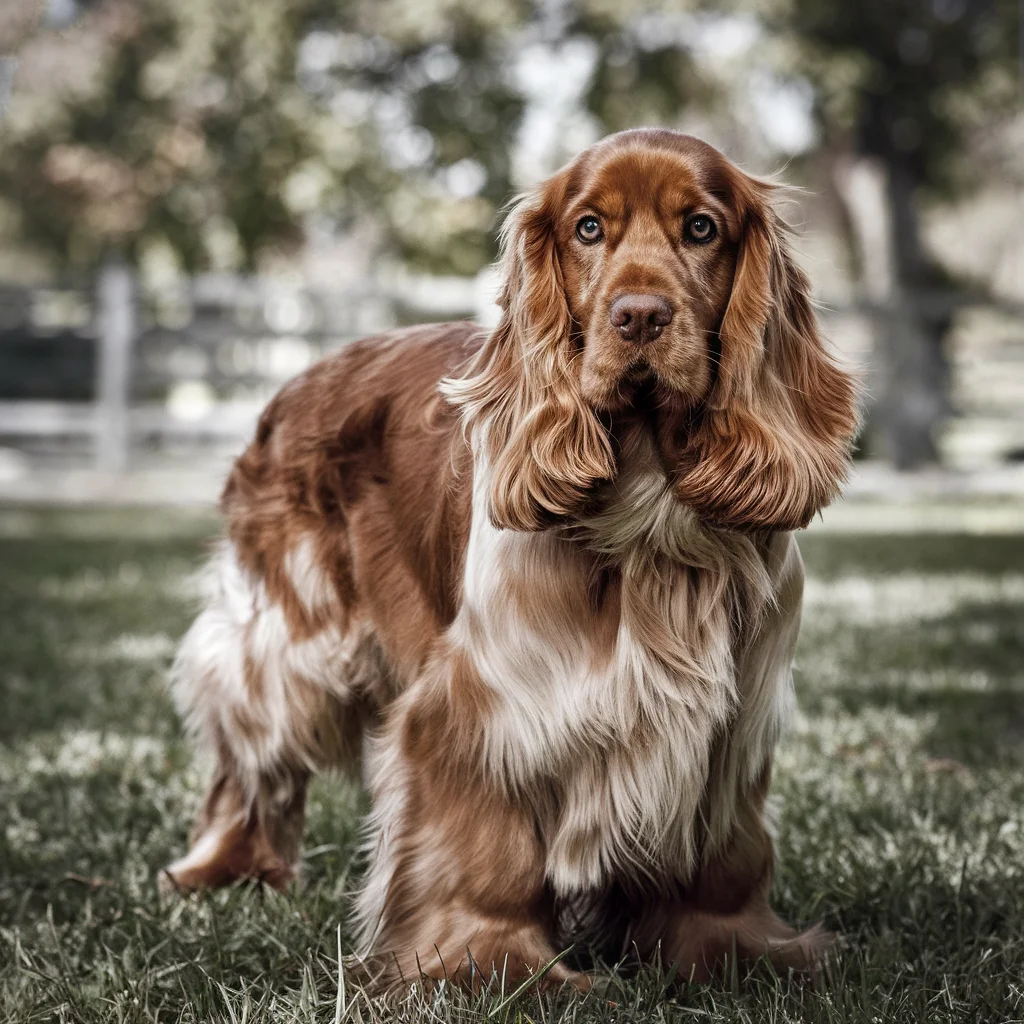
Dogs communicate through their scent, but when the smell becomes overpowering, it can indicate an underlying issue. Let’s dive into the common reasons your Cocker Spaniel might smell and how you can help mitigate these odors.
Ear Infections
Ear infections are a prevalent issue in Cocker Spaniels due to their long ears that can trap moisture and debris. A telltale sign of an ear infection is an unpleasant odor emanating from the ears, often accompanied by symptoms such as itching and redness.
How to Help:
- Regular Ear Cleaning: Use a vet-recommended ear cleaner to gently wipe the inside of your dog’s ears. Aim to do this every week or as advised by your veterinarian.
- Observe Symptoms: Watch for signs of discomfort, such as head shaking or scratching at the ears, and consult your vet if you notice anything unusual.
- Routine Veterinary Check-Ups: Regular vet visits can help catch infections early before they become serious.
Cocker Mouth (Halitosis)
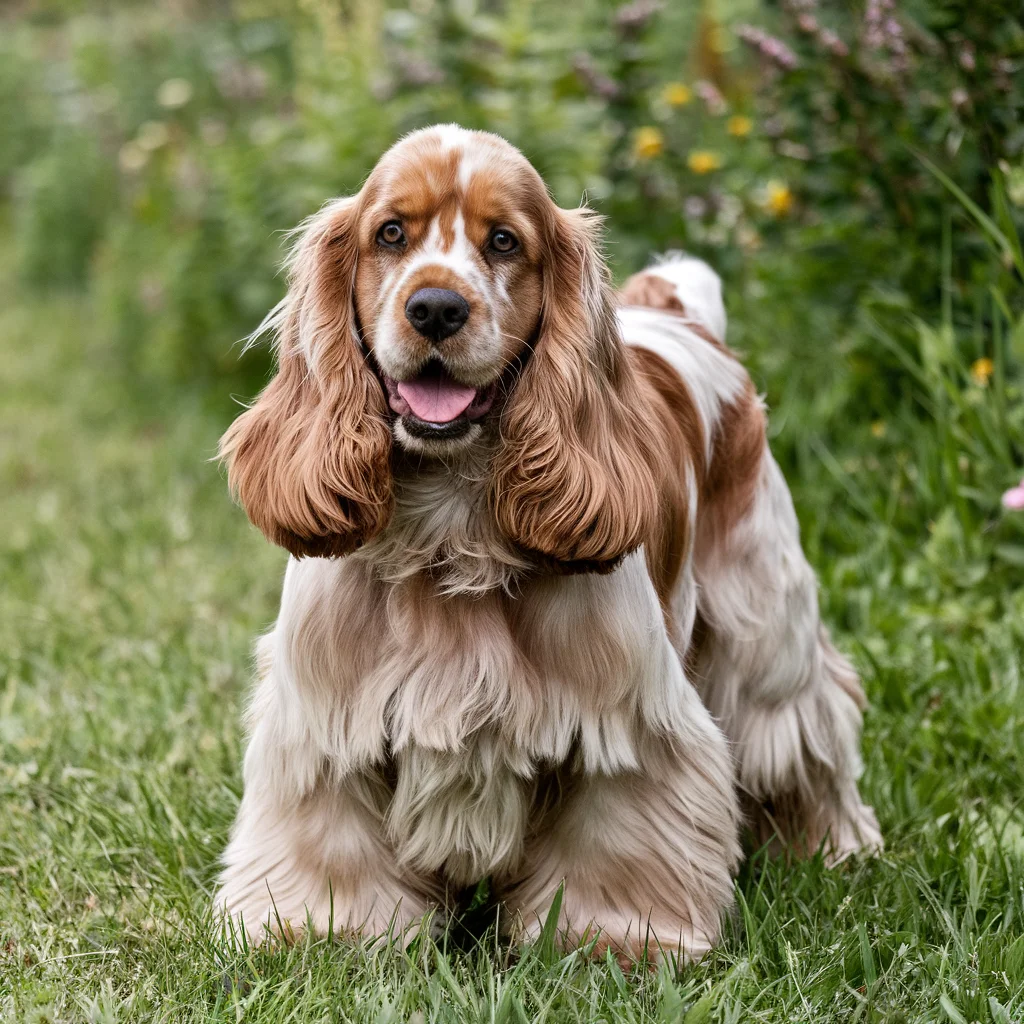
Cocker Spaniels are prone to bad breath, or halitosis, often referred to as “Cocker mouth.” This issue can stem from various causes, including poor dental hygiene, gum disease, or even dietary factors.
How to Help:
- Daily Dental Care: Brush your dog’s teeth regularly using dog-safe toothpaste. Aim for at least two to three times a week, or daily for the best results.
- Dental Chews and Toys: Provide dental chews that promote oral health and help reduce plaque buildup.
- Regular Vet Visits: Schedule professional dental cleanings at least once a year. These visits can significantly improve your dog’s breath and overall health.
Dental Problems
Dental issues can be particularly problematic in Cocker Spaniels. Common signs include swollen gums, loose teeth, and excessive drooling. These problems can lead to more severe health concerns if not addressed.
How to Help:
- Monitor for Symptoms: Keep an eye on your dog’s oral health. If you notice any signs of distress or bad breath, consult your vet.
- Offer Appropriate Chew Toys: Encourage healthy chewing habits with vet-approved toys that can help clean teeth as your dog chews.
- Diet Matters: A high-quality diet can support dental health. Consult your vet for recommendations on the best food for your Cocker Spaniel.
Skin Infections
Skin infections in Cocker Spaniels can produce foul odors, often accompanied by redness, itching, and hair loss. These infections can arise from allergies, poor grooming, or underlying health issues.
How to Help:
- Regular Grooming: Brush your Cocker Spaniel’s coat frequently to remove dirt and debris. Bathe them with vet-recommended shampoos that suit their skin type.
- Watch for Allergies: If your dog frequently scratches or shows signs of irritation, consult your vet to explore possible allergies.
- Veterinary Treatment: Seek veterinary help if you suspect a skin infection. Prescription medications or special shampoos may be necessary.
Kidney Disease
Kidney disease can lead to noticeable changes in a dog’s odor, often resulting in a strong, ammonia-like smell. Other symptoms may include increased thirst and urination.
How to Help:
- Regular Check-Ups: Schedule regular veterinary visits for blood and urine tests to monitor kidney function, especially in older dogs.
- Dietary Adjustments: Work with your vet to create a diet that supports kidney health. This may involve feeding lower-protein, low-phosphorus diets.
- Hydration is Key: Ensure your dog has constant access to fresh water to stay hydrated, as this can help support kidney function.
Stomach Issues
Digestive problems can lead to gas, diarrhea, and foul odors, significantly impacting your Cocker Spaniel’s smell. Issues may arise from food intolerances, infections, or dietary indiscretion.
How to Help:
- Balanced Diet: Feed your dog a high-quality diet formulated for their specific needs. Avoid table scraps and sudden changes in diet.
- Monitor for Symptoms: Keep an eye on your dog’s stool and overall demeanor. If you notice any changes, consult your vet.
- Probiotics: Consider adding probiotics to your dog’s diet after discussing it with your vet, as they can promote healthy gut bacteria.
Impacted Anal Glands
Impacted anal glands can cause a strong, unpleasant odor, especially if your dog scoots on the floor or licks their rear. This condition can be uncomfortable and sometimes painful for your Cocker Spaniel.
How to Help:
- Regular Grooming: Keeping your dog’s rear clean can help prevent odor buildup.
- Diet for Better Stools: A diet that promotes firm stools can help naturally express anal glands. Discuss dietary options with your vet.
- Vet Assistance: If you suspect impacted anal glands, consult your vet. They may need to express them manually to relieve discomfort.
Medication Side Effects
Some medications can cause changes in odor, leading to unpleasant smells. Always discuss potential side effects with your veterinarian when starting new medications.
How to Help:
- Communication with Your Vet: Talk to your vet about any concerns regarding your dog’s medication and its side effects.
- Evaluate Necessity: If the odor is bothersome and linked to a medication, explore alternative treatments with your vet.
- Monitor Overall Health: Keep an eye on your dog’s general health and behavior while on medication to catch any issues early.
Rolling in Stinky Stuff
Sometimes, a simple cause for your Cocker Spaniel’s smell is their instinct to roll in things like mud, grass, or worse—animal waste. While this behavior is natural, it can lead to an unpleasant odor.
How to Help:
- Supervision Outdoors: Keep an eye on your dog during outdoor playtime. If they head toward something suspicious, redirect them.
- Designated Play Areas: Create a clean, designated area for your dog to play where they are less likely to encounter unpleasant substances.
- Post-Play Clean-Up: After outdoor play, bathe your dog if they get into something smelly. Use a gentle dog shampoo to clean them up.
Conclusion
Understanding why your Cocker Spaniel smells is crucial for their health and your peace of mind.
Regular grooming, veterinary check-ups, and awareness of your dog’s habits can help you identify and address any odor issues effectively.
Always stay informed, be proactive in their care, and don’t hesitate to consult your veterinarian when in doubt. Your Cocker Spaniel deserves the best care to live a happy, odor-free life.



